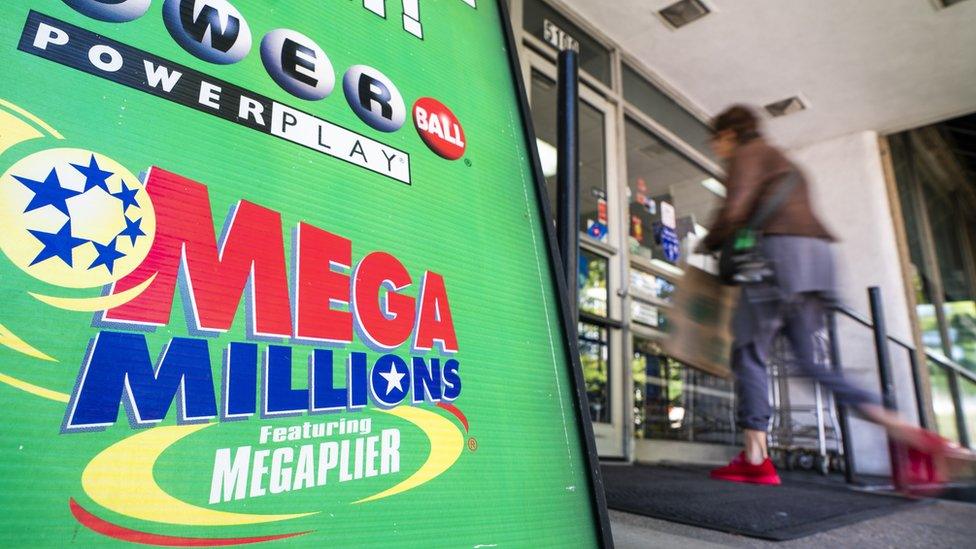Mega Millions: Why the US has massive lottery jackpots
- Published
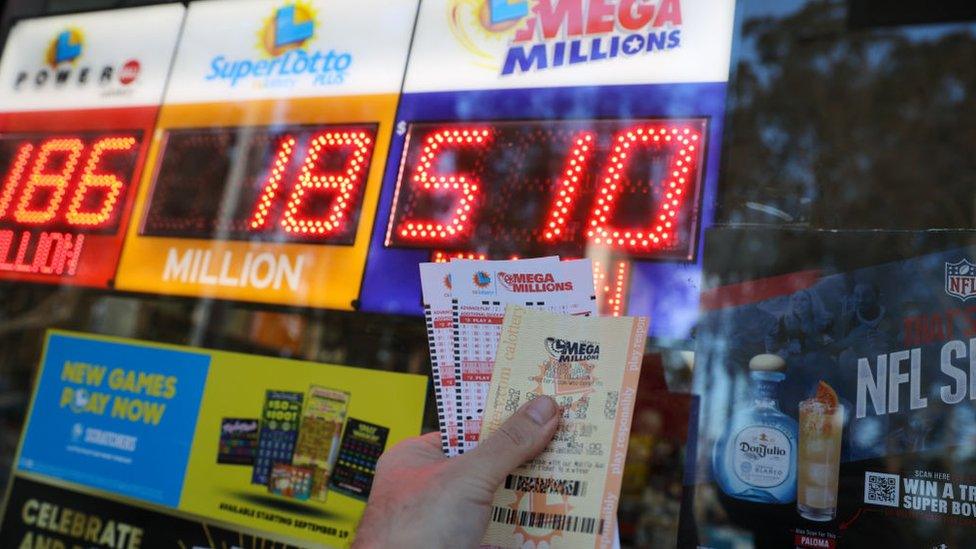
The Mega Millions lottery has grown in size again to $1.35bn (£1.1bn) after no winners scooped the prize on Tuesday night.
It makes it the second highest in US history and comes just months after a record-breaking Powerball jackpot of $2.04bn was won in California.
Of course, many other countries also have lotteries - but the US consistently sees record breaking prizes.
So why exactly are they so large? Jonathan Cohen, author of For a Dollar and a Dream: State Lotteries in Modern America, explained the phenomenon to the BBC.
A brief lottery history
Initially, individual states had their own lotteries.
Multi-state lottery associations were born out of frustration from states with smaller populations, Mr Cohen said. They became tired of residents buying a ticket across the state border in bigger states - which had bigger potential jackpots.
Illinois, for instance, has a much larger population than Iowa and therefore more lottery players. If no one wins, the jackpot rolls over and keeps accumulating. Fewer people in Iowa will buy tickets there because they can simply cross the border to Illinois where the jackpot is bigger.
As a result, states started to band together in the 1980s and this eventually became known as the national lottery. Powerball and Mega Millions is now played in 45 states, which explains why the jackpots can be so large.
The odds to win
The size of the US isn't the only reason for the big prizes. The rules of the game have also shifted over the years.
"Lottery commissions and multi-state games have been reducing the odds of winning, in order to increase the likelihood that prizes will roll over and get bigger," Mr Cohen said.
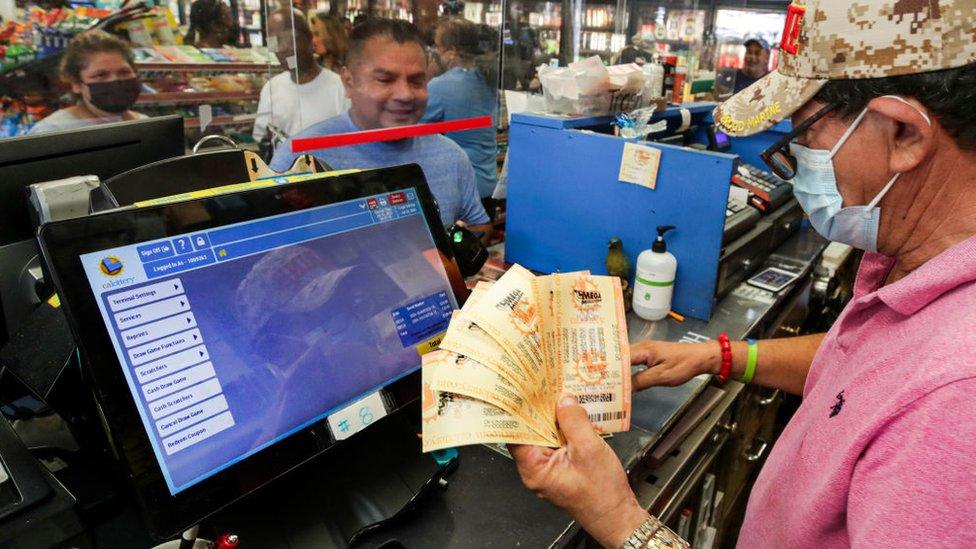
But it turns out lottery players don't necessarily care about better odds.
"People can't tell the difference between one in four million, one in 40 million or one in 400 million odds of winning, but they can tell the difference between a $4m, $40m or a $400m jackpot," Mr Cohen said.
He added that the proliferation of billionaires had shifted the standards for wealth.
"The lottery really has become one of the only ways people can get that billion dollars for themselves. So that's why it inspires just as much cultural fever now, even though the odds have gotten just so much, indescribably worse than they used to be," Mr Cohen said.
According to Mega Millions spokesperson Danielle Frizzi-Bab, the "current game matrix" to win came into effect in 2017.
She added that recent jackpot runs have been aided by "consumer interest during the holidays".
"Interest rates, which impact the jackpot that can be sustained, played a minor role," she noted.
A cultural craze
America's love with the lottery is - to some extent - fuelled by the media frenzy that can come from a large, growing, jackpot.
There is a cultural participation element "where people feel like they are missing out by not buying a ticket", Mr Cohen said.
Of those interviewed in his book, many had not even thought about playing the lottery until they saw a large jackpot on the news.
If no winner comes forward, the money will rollover to the next draw and add to that jackpot amount. And that means more media attention - and likely more players.
Related topics
- Published8 November 2022
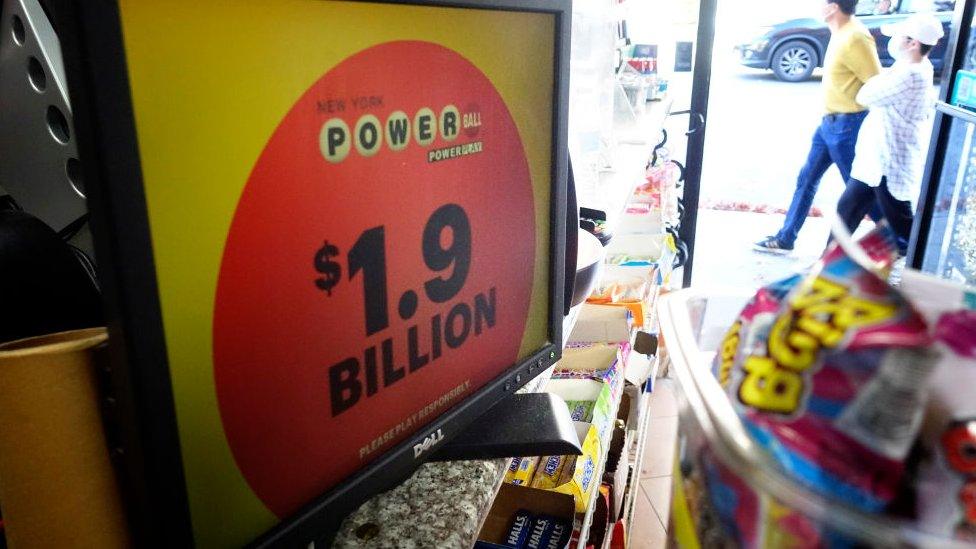
- Published4 November 2022
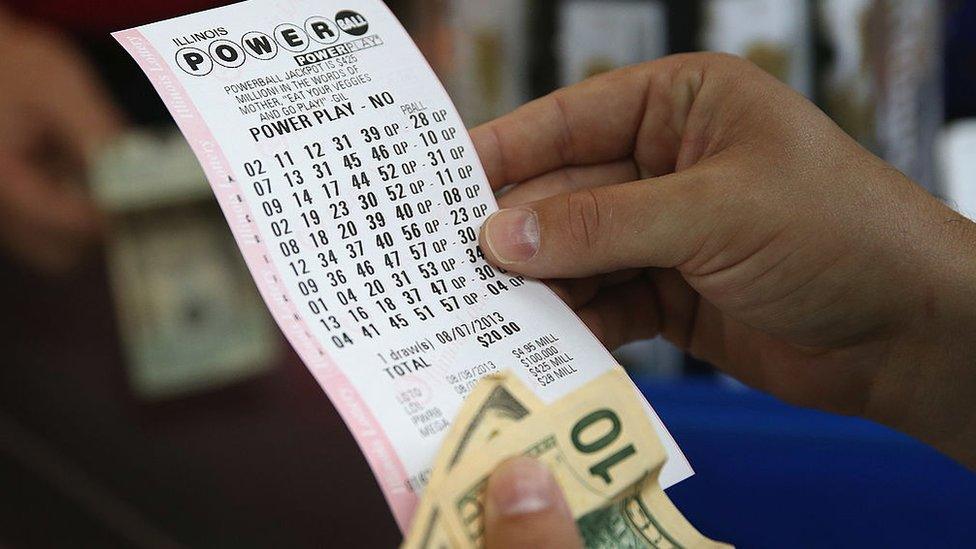
- Published30 July 2022
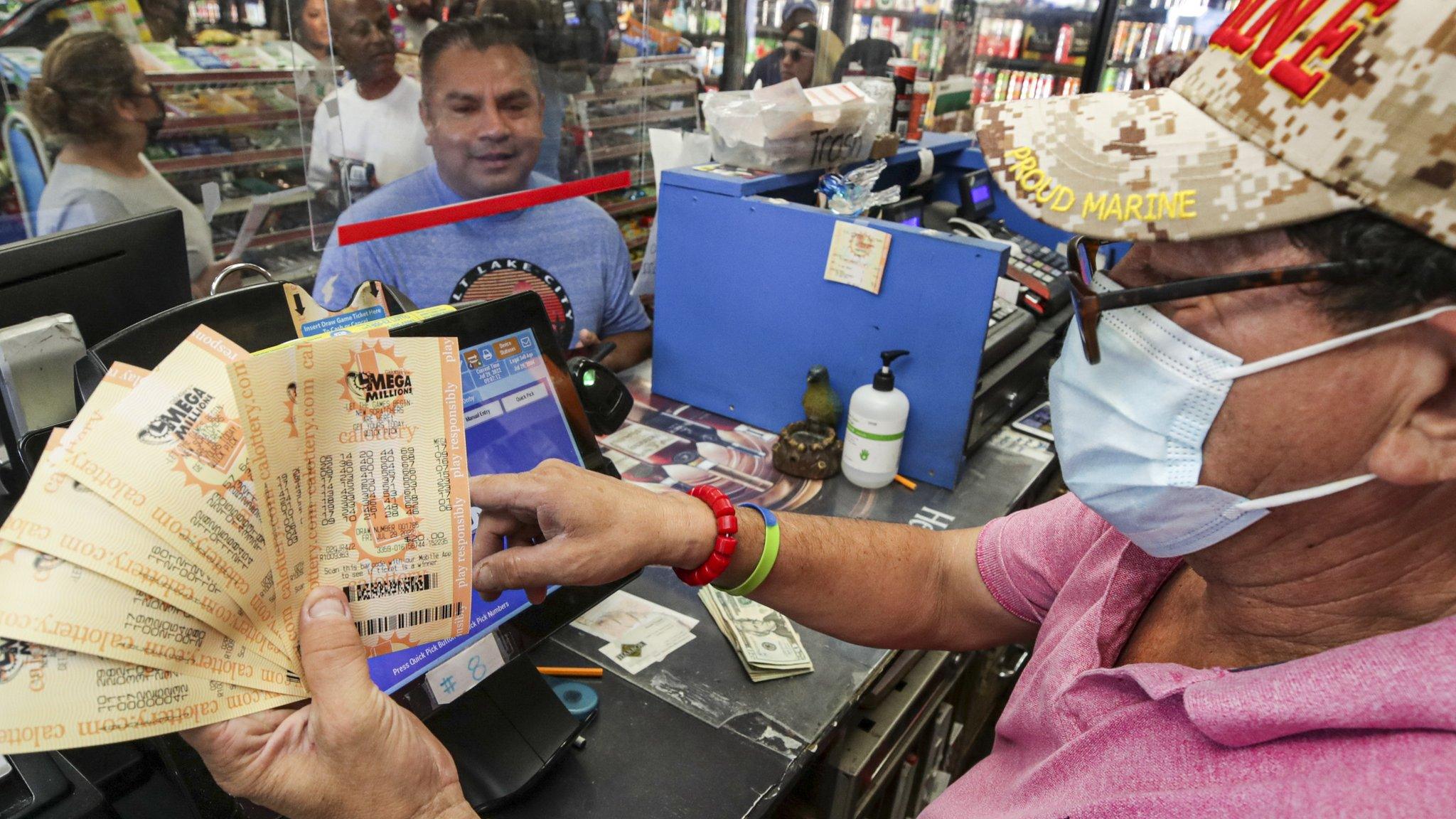
- Published20 October 2018
